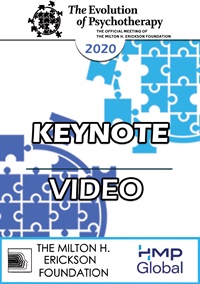EP20 Keynote 01 - My Journey from Evil to Heroism - Philip Zimbardo, PhD
- Average Rating:
- Not yet rated
- Topic Areas:
- Psychology | Social Psychology | Keynotes
- Categories:
- Evolution of Psychotherapy | Evolution of Psychotherapy 2020
- Faculty:
- Philip Zimbardo, PhD
- Course Levels:
- Master Degree or Higher in Health-Related Field
- Duration:
- 2 hours
- Format:
- Audio and Video
- Original Program Date:
- Dec 09, 2020
- License:
- Never Expires.
Description
Description:
This lecture traces his journey from childhood through the Stanford Prison Experiment on the theme of the banality of evil, then switches to focus on the banality of heroism in his new life’s mission of training people around the world be wise and effective heroes who stand up, speak out and take action in challenging situations in their lives, as part of the Heroic Imagination Project.
Educational Objectives:
- Describe the processes by which good people can take part in harmful deeds
- Discuss how experimental research can shed new light on fundamental aspects of human nature
- Explain how it is possible to create a new generation of everyday superheroes, who can inspire us to take compassionate and psychologically informed actions
*Sessions may be edited for content and to preserve confidentiality*
Credits
Handouts
| My Journey from Evil to Heroism Handout (30.3 MB) | Available after Purchase | ||
Faculty

Philip Zimbardo, PhD Related Seminars and Products
Philip G. Zimbardo is an internationally recognized scholar, educator, researcher and media personality, winning numerous awards and honors in each of these domains. He has been a Stanford University professor since 1968, having taught previously at Yale, NYU and Columbia. Zimbardo's career is noted for giving psychology away to the public through his popular PBS-TV series, Discovering Psychology, along with many text and trade books, among his 300 publications. He was recently president of the American Psychological Association.


